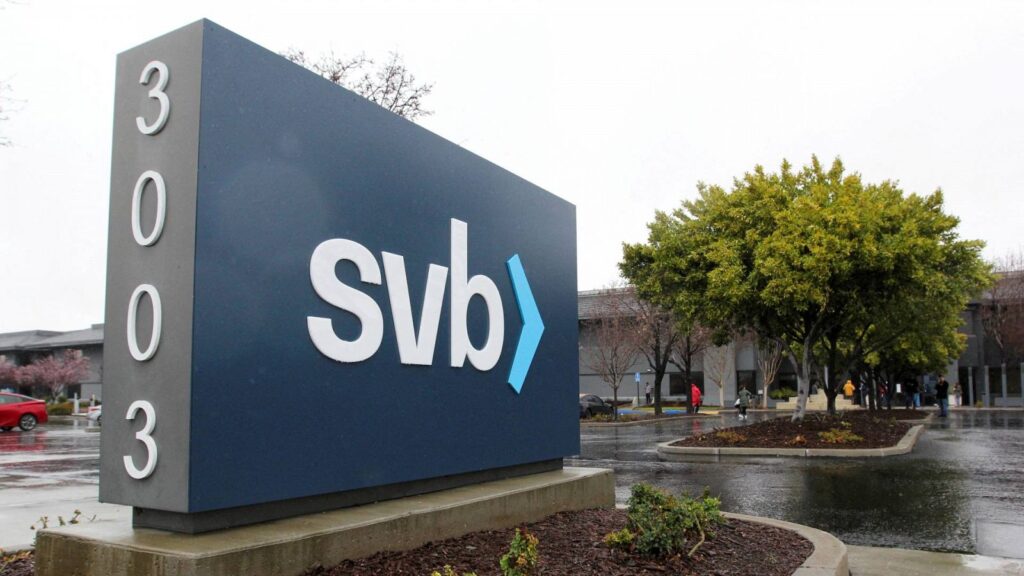Banking Crisis 2023: SVB Fallout & Reform Calls

The Stability of the Banking System: A Critical Examination
In recent times, the stability of the banking system has come under intense scrutiny, particularly in the wake of high-profile incidents that have shaken investor confidence and prompted regulatory introspection. The tumultuous events surrounding the downfall of Silicon Valley Bank (SVB), the challenges faced by New York Community Bancorp (NYCB), and the global implications for the financial sector encapsulate a pivotal moment of reflection and potential transformation within the industry.
The Downfall of SVB and the Challenges for NYCB
Approximately one year subsequent to the collapse of SVB, NYCB grappled with significant difficulties, epitomized by a substantial $6 billion reduction in deposits. This incident stoked fears within the financial community. A timely intervention came in the form of a $1 billion equity infusion by Steven Mnuchin and Joseph Otting, alongside their subsequent board appointments, providing NYCB with a crucial lifeline. NYCB’s challenges, though severe, evidenced by a quarterly net loss, a declining stock price, and reduced dividends, were less acute in comparison to the swift and stark demise of SVB.
Understanding Bank Runs: Academic Perspectives
The phenomenon of bank runs has long been a focal point of academic inquiry, particularly by the 2022 Nobel laureates Diamond, Dybvig, and Bernanke. These liquidity crises, often triggered by a panic among depositors, have historically posed a grave threat to the banking sector. Yet, modern banking systems have fortified their defenses against such runs, bolstered by deposit insurance and enhanced regulatory oversight. The year 2023 marked a watershed moment as regulators implemented unprecedented measures to thwart a domino effect of instability following the collapses of SVB and Signature Bank, as well as the near-failure of First Republic Bank.
The Digital Acceleration of SVB’s Bank Run
SVB’s collapse was characterized by a staggering bank run, with the loss of $42 billion in deposits in a single day, a substantial portion of which was uninsured and predominantly derived from the technology and venture capital communities. The rapidity of the bank run was amplified by SVB’s digitally adept customer base and the swift spread of concerns through social media channels, notably Twitter. Scholarly perspectives indicate that contemporary bank runs are more closely linked to the movements of institutional funds rather than the panic of retail depositors.
The Influence of Social Media on Financial Stability
The role of social media, particularly Twitter, in the acceleration of SVB’s deposit withdrawals has been highlighted, with some referring to it as the first “Twitter-fueled bank run.” Discussions continue regarding the extent to which social media influences such events versus the underlying issues that may primarily reside within private communications among institutional investors.
Regulatory Reflection and the Path Forward
In response to these crises, there have been calls for a reevaluation of supervisory practices, with regulators and academics urging for modifications in both banking and regulatory strategies to address emerging risks. This encompasses enhancing transparency in supervisory routines, the inclusion of executive management in risk oversight, and the consideration of technological advancements that may surpass current regulatory frameworks. Legislative proposals and academic studies are advocating for increased responsibility of bank management and a reconsideration of liquidity requirements to better mitigate the risks of bank runs.
A Transformative Era for the Banking Industry
To conclude, the banking industry is currently navigating a transformative era, where the integration of technology, regulation, and market forces is reshaping the landscape. The recent banking incidents serve as a stark reminder of the vulnerabilities within the system and the need for continued vigilance and proactive reform. It is imperative that industry stakeholders, policymakers, and the wider public remain engaged and informed, to foster a resilient, transparent, and accountable financial system for the future. The collective responsibility to act and think critically about these issues is crucial for safeguarding the integrity and stability of the global economic infrastructure.
Interested in speaking with our consultants? Click here to get in touch

